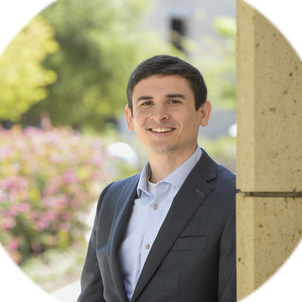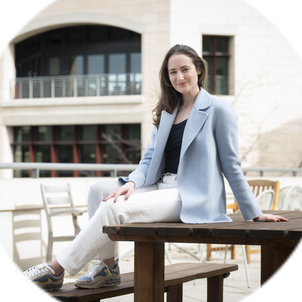My parents are both cancer biologists, so STEM was ever-present in our house, but I had license to explore, which I was thankful for. In high school I was involved in debate, and I actually applied to college as a humanities major.
I got into computer science through the first CS course I took as a freshman at Harvard College. It taught the basics of software engineering and ended with students forming teams for a final project. I took it with two of my roommates, and on weekends we’d all sit down and work together. The work escalated quickly, and I vividly remember one night when we started working at 6 p.m. and finished the next day at 7 a.m., right before a deadline. I wouldn’t recommend this approach, but even though it was tough, it was exciting. In other classes, things had been broken down so we could gradually understand bits and pieces, but here we had to quickly understand the bigger picture, and it felt more and more like we were building final products. It made me feel empowered, which can be a rare feeling for a college freshman.
By my sophomore year, I became interested in machine learning, and one fateful day I met with my advisor, Professor Stratos Idreos, and told him I wanted to understand how to make these systems better. He told me that at the end of the day, machine learning models like neural networks are data structures; they store and provide access to data. Just like databases, what enables us to run these powerful models is clever data management. Stratos became an important mentor to me, and advised my undergraduate research at the intersection of databases and machine learning.
Today I’m affiliated with Stanford’s AI Lab, Natural Language Processing Group, and Center for Research on Foundation Models. My current work focuses on trying to understand large language models like ChatGPT. As a field, we’ve produced these models, and now we have to figure out how to unleash their capabilities in increasingly productive and sophisticated ways. I want to find ways to harness some of the knowledge in these models – the commonsense or broad reasoning capabilities that are embedded within them – to help make them more robust and less overconfident in their predictions. You could summarize my work by saying I want to give machine learning models more humility.
You can apply this work to large-scale data in any field – such as object recognition, medicine, law, or genomics. I particularly care about machine learning applications in healthcare, energy, and climate change – uses that will not only save lives, but also improve the well-being of both people and the planet.
As a kid, I used to read magazines like Popular Science and Popular Mechanics, and I remember being excited to see all kinds of next-generation futuristic products, things like synthetic hearts or hydrogen-powered passenger jets. There are lots of ideas that are still very far away and will require a lot more progress across many disciplines. But I really care about and enjoy machine learning because it can be an amplifier for a lot of our new technologies and is so broadly applicable, whether you’re talking about artificial hearts or new fuel cells or stronger, more durable composite materials for power plants. It’s what keeps me excited today.
Related spotlights

Thomas Colburn

Kayla Patterson

